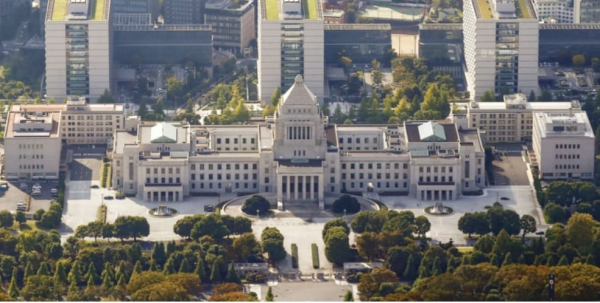KPL
(KPL/KYODO NEWS) The ruling Liberal Democratic Party is the most popular among Japanese voters ahead of the general election on Oct. 27, a Kyodo News survey showed Sunday.

(KPL/KYODO NEWS) The ruling Liberal Democratic Party is the most popular among Japanese voters ahead of the general election on Oct. 27, a Kyodo News survey showed Sunday.
In a nationwide telephone survey conducted on Saturday and Sunday, 26.4 percent of respondents said they plan to vote for the LDP, led by Prime Minister Shigeru Ishiba, in the proportional representation segment, compared to 12.4 percent supporting the main opposition, the Constitutional Democratic Party of Japan.
The LDP's junior coalition partner, the Komeito party, was supported by 6.4 percent, while 33.2 percent said they do not know which party they will vote for.
Facing a backlash over slush funds amassed by intraparty factions within the LDP, the ruling party is scrambling to refresh its public image with Ishiba.
A total of 65.2 percent said they would take into "consideration" or "some consideration" the party's slush funds scandal, with 32.2 percent answering they would not.
The approval rating for his Cabinet stood at 42.0 percent, while the disapproval rate was 36.7 percent. A different Kyodo survey taken a day after his inauguration earlier this month saw his approval at 50.7 percent, though no simple comparisons are possible due to the use of different polling methods.
A total of 46.6 percent of respondents said they did not know who they would vote for in the upcoming general election's single-seat districts, while 28.5 percent said they would vote for an LDP candidate, and 22.9 percent planned to cast their vote for the opposition.
Regarding the LDP's decision not to endorse 12 lawmakers implicated in the political funds scandal as official candidates in the single-seat districts, 71.6 percent said the action was "insufficient," while 22.1 percent believe it was "sufficient."
A total of 50.7 percent said their preferred outcome from the election would be for the ruling and opposition parties to be evenly split, 27.1 percent would like the ruling party to be dominant and 15.1 percent answered that they wanted to see the parties reverse in power.
In a question allowing up to two answers about the issues constituents were likely to base their vote on, 57.0 percent cited measures concerning the economy, employment, and inflation, followed by 38.4 percent who mentioned pensions and social security, and 14.4 percent who cited issues surrounding political funding.
For the survey, 617 randomly selected households with eligible voters and 3,367 mobile phone numbers were called, yielding responses from 503 household members and 761 mobile phone users.
KPL